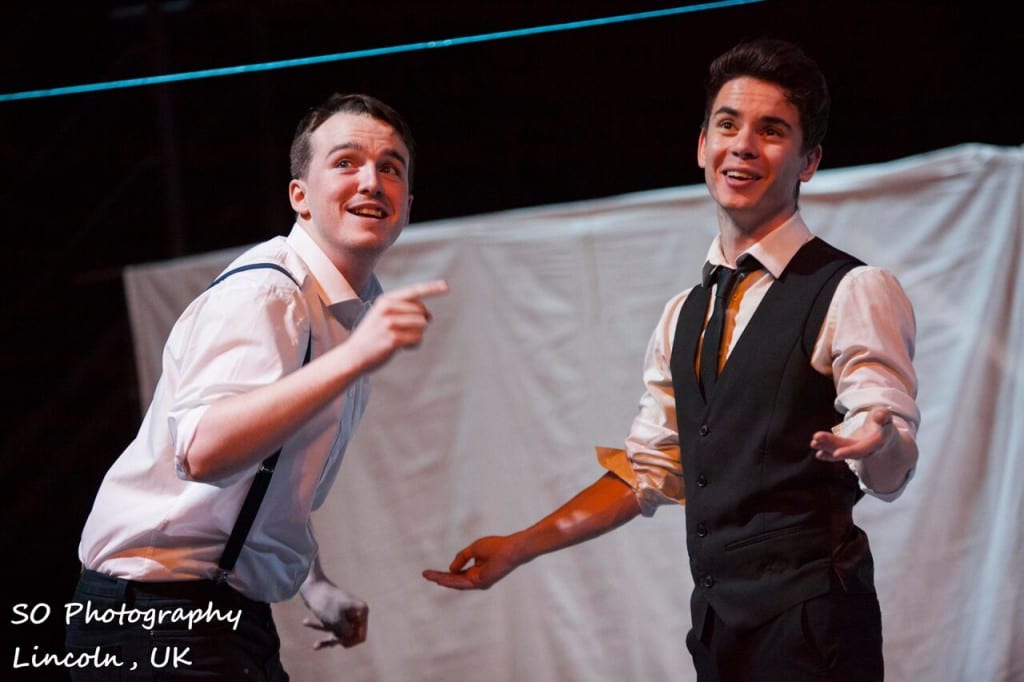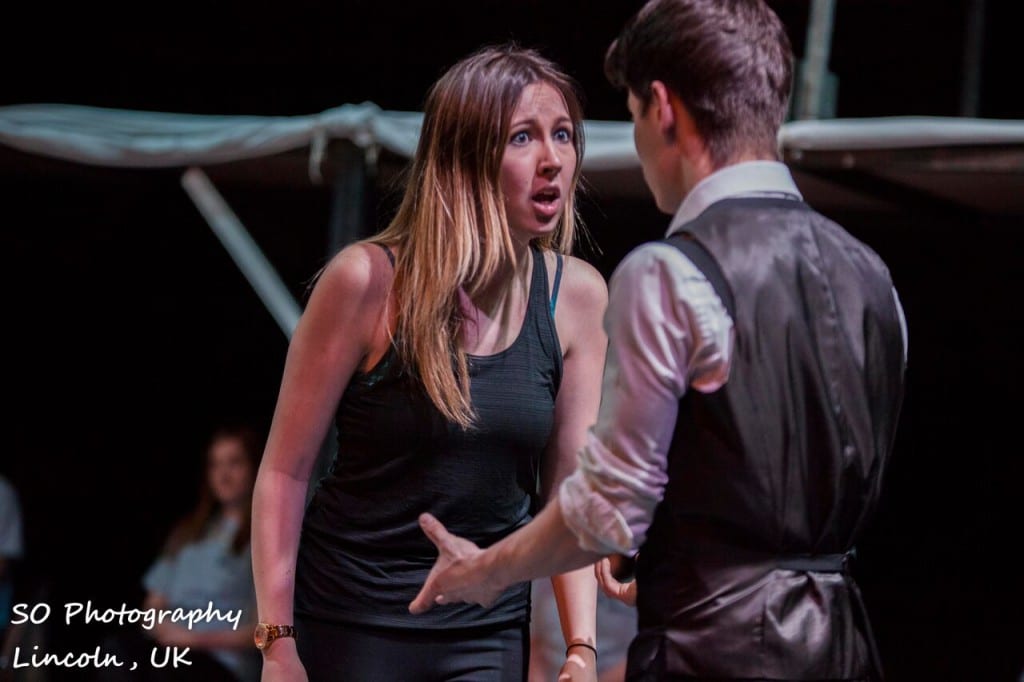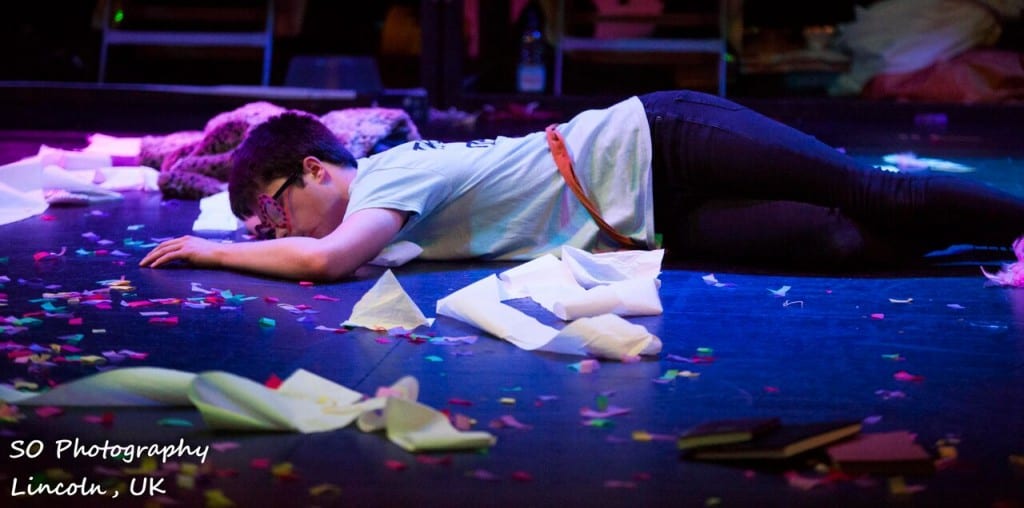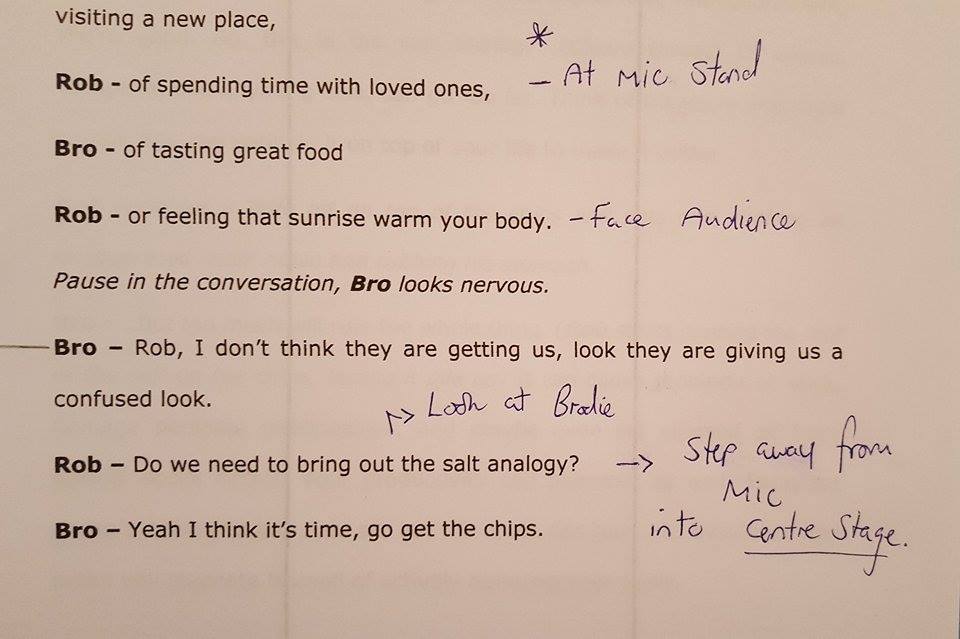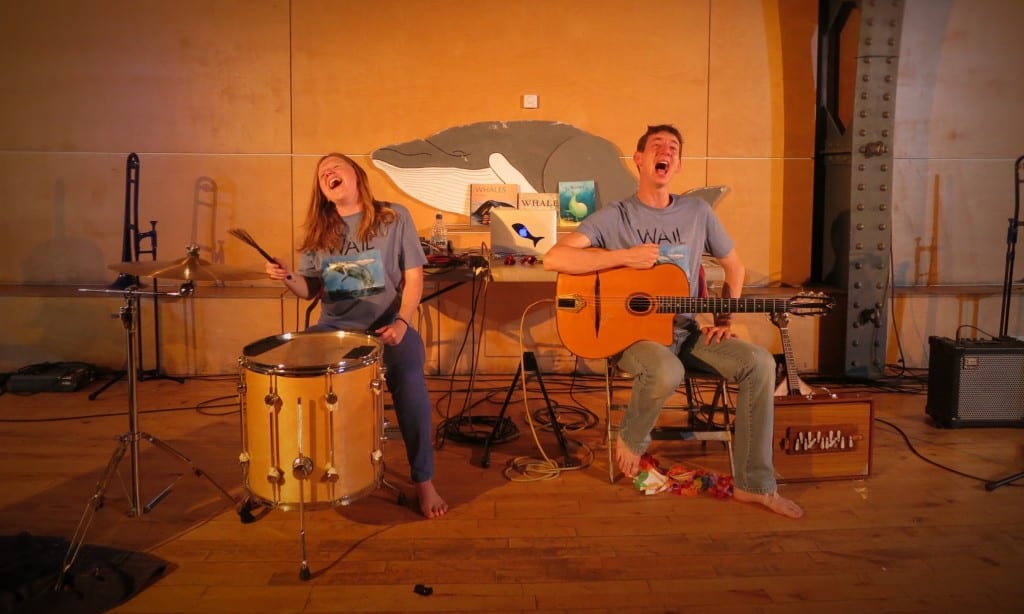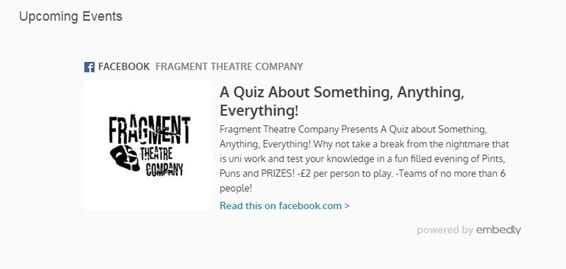Fragment Theatre Company’s debut show Exit This Way (Anthony and Atkinson, 2017) has now passed. As an actor I believe the presence of the audience intensified the chemistry between the two narrators, with the audience’s laughter as well as silence adding, at times, unexpected emphasis to various serious and comical moments throughout the performance.
Figure 1 – Narrators on Show Day (Odonnell, 2017)
Most notably this was seen within the ‘flashback’ moments between myself and Roxy’s character of Ella. These scenes, which created another ‘switch’ between the variations in my character, magnified the seriousness of the physical endurance Roxy had undergone in the performance as both herself and her character, which had not been as apparent to myself, until the performance date.
Figure 2 – Roxy and Rob on Show Day (Odonnell, 2017)
I believe the narrator’s contrast of comedy and seriousness in their personalities was made clear during the performance which, in parallel to the serious undertones to the different sections which often involved comical elements (such as Brodie’s ‘Wheel of Escapism’ costume), further extenuated both the serious and comical moments throughout the duration of the performance.
In my personal opinion the presence of the audience extenuated the ‘live atmosphere’ of the performance and provided myself with a challenge when my character was not meant to react to, or enjoy Brodie’s character’s antics.
I believe the piece could indeed be classified as a ‘postmodern’ piece as it succeeded in including the ‘characteristics [which] distinguish postmodern [performances]: fragmentation, indeterminacy, reflexivity, intertextuality, montage techniques, temporal conflation, randomness’ (Malkin, 1999, 17), which gave an insight into methods individuals may use to escape from daily life.
After reflecting on the performance I have realised that as well as representing methods of escapism this piece, through the narrator’s creation and interjection of scenes and the intermittent deterioration of characters to actors, the performance also arguably represents the presence of failure in everyday life.
Figure 3 – Ben on Show Day (Odonnell, 2017)
Upon this reflection I decided to research into the notion of failure in regards to performance. In Dr Sara Jane Bailes’ Performance Theatre and the Poetics of Failure (2011), Bailes describes how ‘[failure] challenges the cultural dominance of instrumental rationality and the fictions of continuity that bind the way we imagine and manufacture the world’ (Bailes, 2011, 2). I believe this notion correlates with our intention of displaying how escapism and the failures of these methods, conflict with and contrast against the ‘rationality’ of ‘the real world’ and ‘every-day life’.
If we were to work as a professional theatre company in the future, and re-produce Exit This Way (Anthony and Atkinson, 2017), I believe utilising Arts Council Funding to increase our budget would allow us to potentially tour the show, with a reduction in cast, set and props for practicality.
I believe the heightened understanding and awareness of our projection of failure within the piece, could also allow us to extenuate the contrast between ‘reality’ and ‘escapism’ already present within the script. In addition, the ‘postmodern’ self-aware characters could give us dramatic scope to acknowledge any changes to the ‘topical jokes’ present in the script, which would add another layer of meta-theatricality to our piece.
Works cited:
Anthony, R. and Atkinson, B. (2017) Exit This Way [live performance]. Performed by Fragment Theatre Company. Lincoln: Lincoln Performing Arts Centre, 19 May.
Bailes, S. J. (2011) Performance Theatre and The Poetics of Failure. Oxon: Routledge.
Malkin, J. R. (1999) Memory-Theatre and Postmodern Drama. Michigan: University of Michigan.
Figures:
Figure 1 – Odonnell, S. (2017) Narrators on Show Day. Lincoln.
Figure 2 – Odonnell, S. (2017) Roxy and Rob on Show Day. Lincoln.
Figure 3 – Odonnell, S. (2017) Ben on Show Day. Lincoln.
